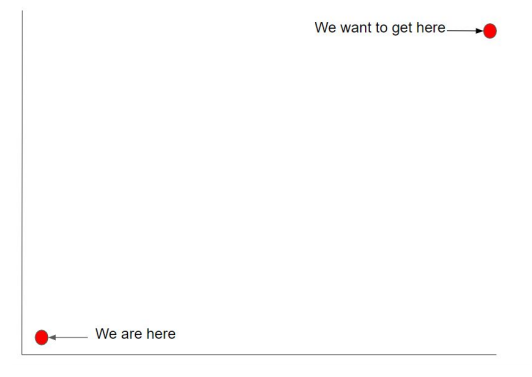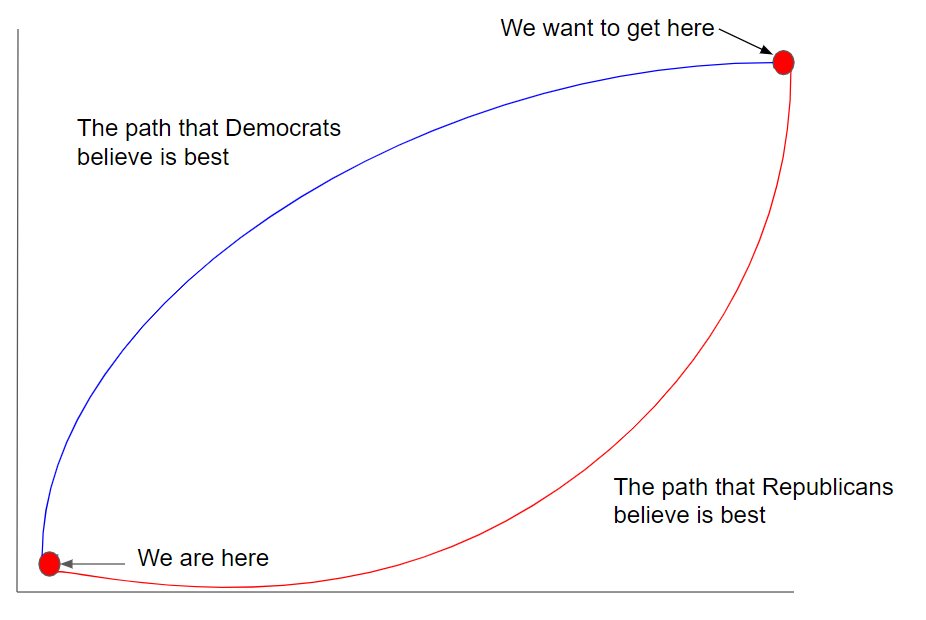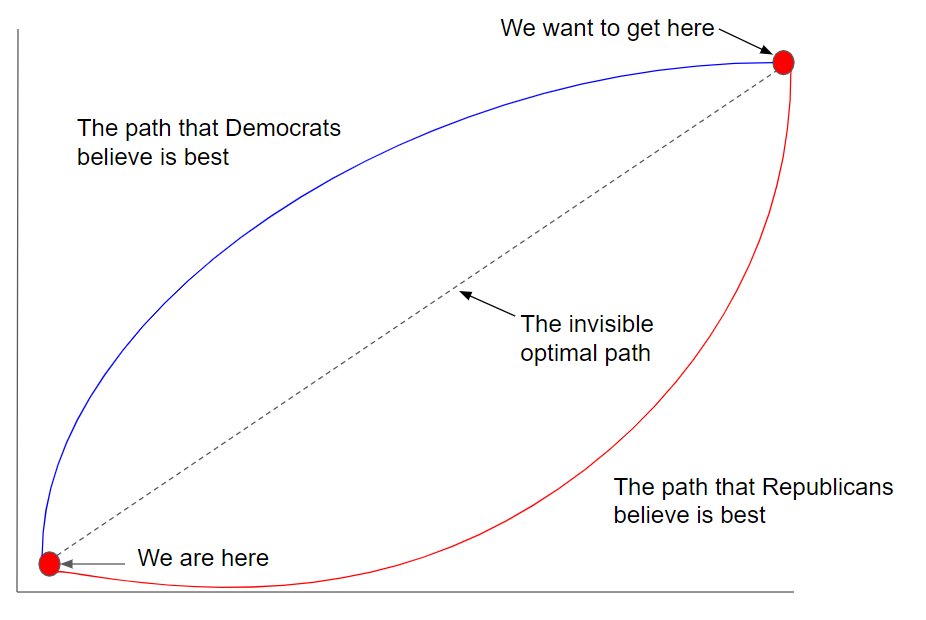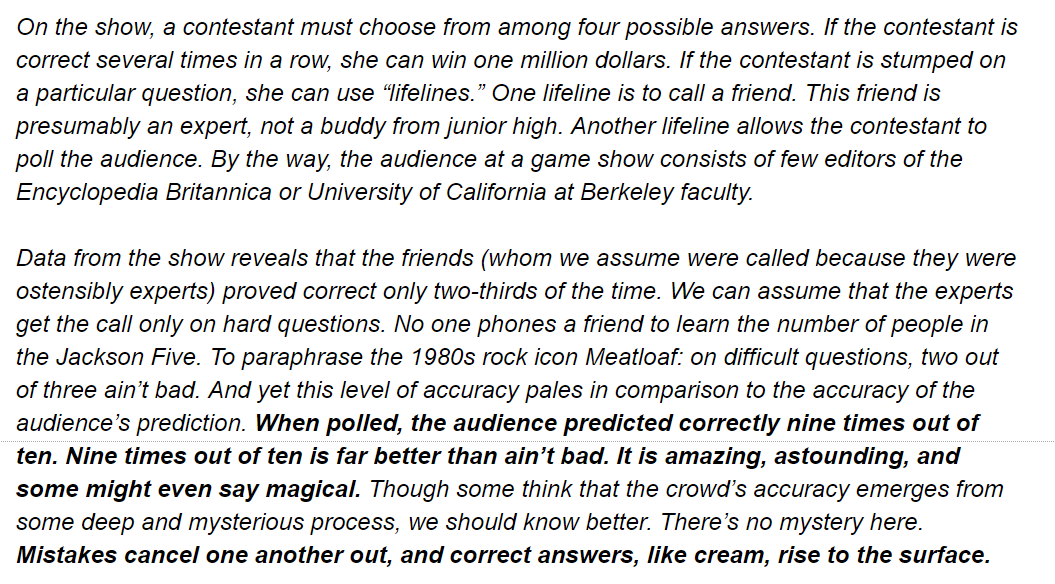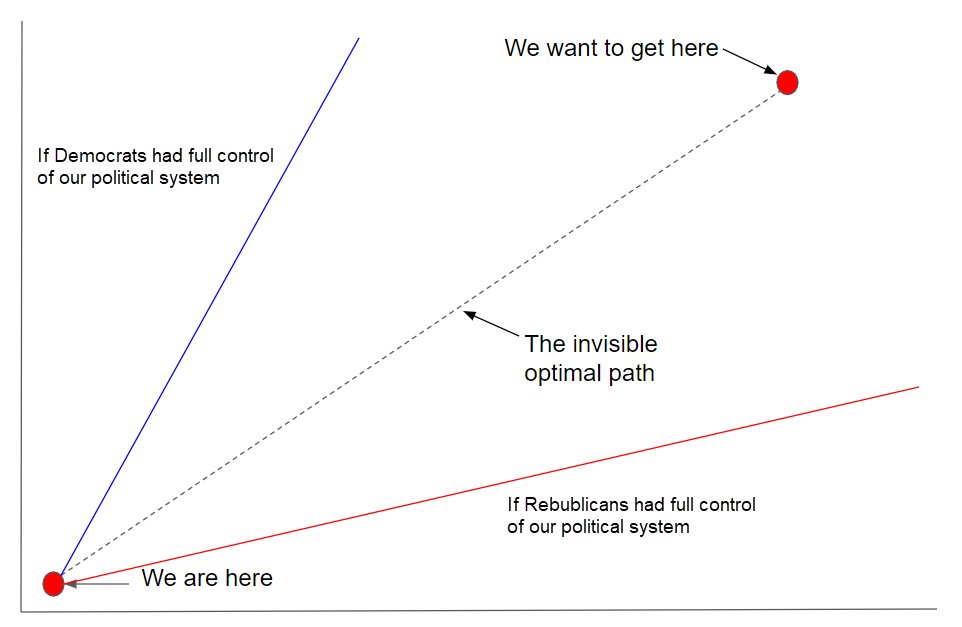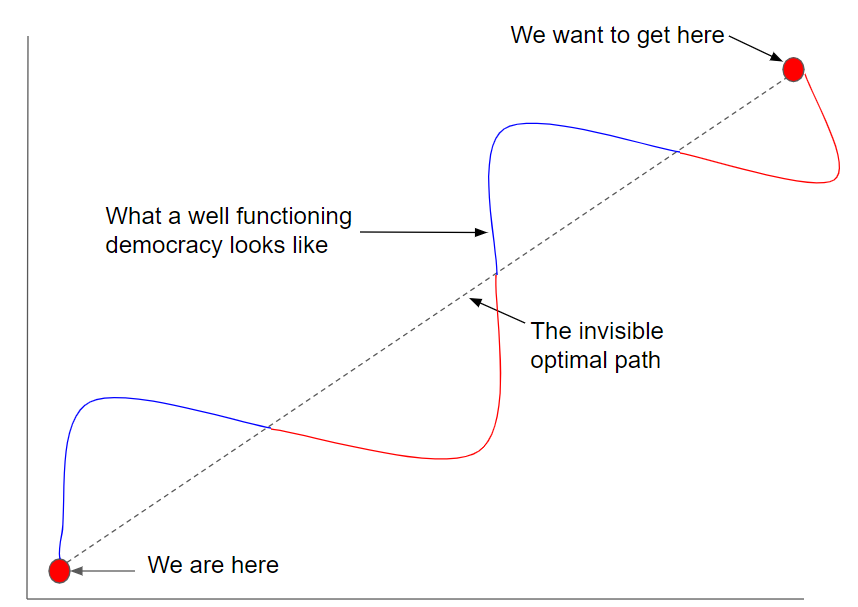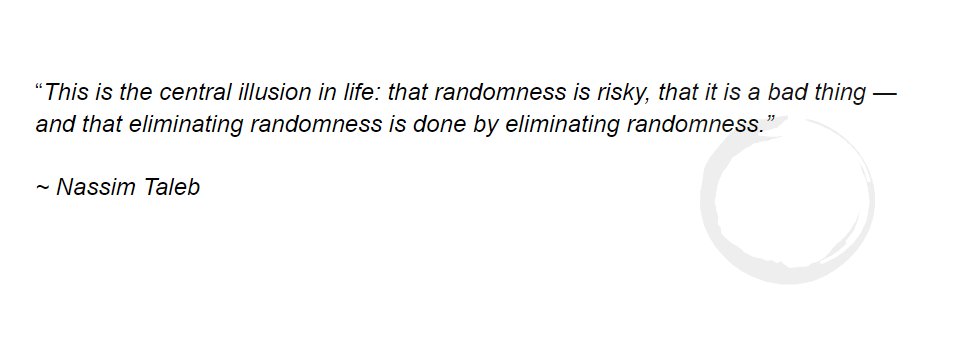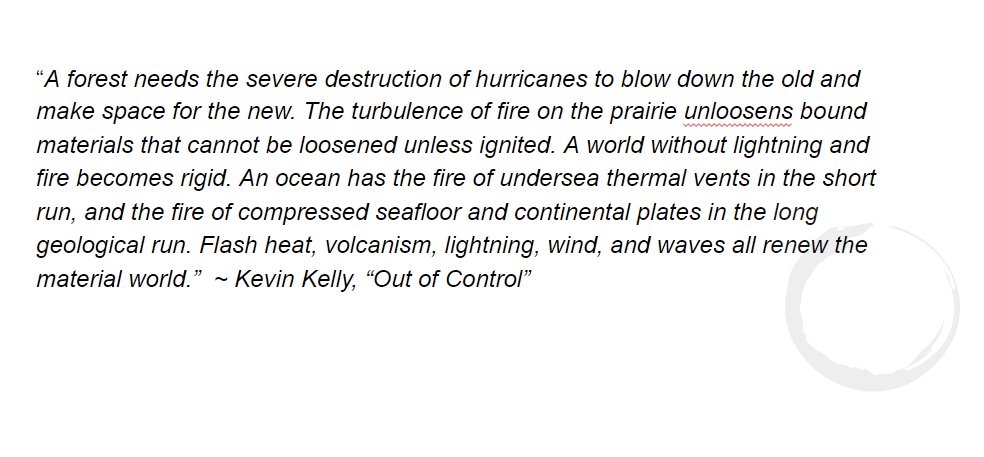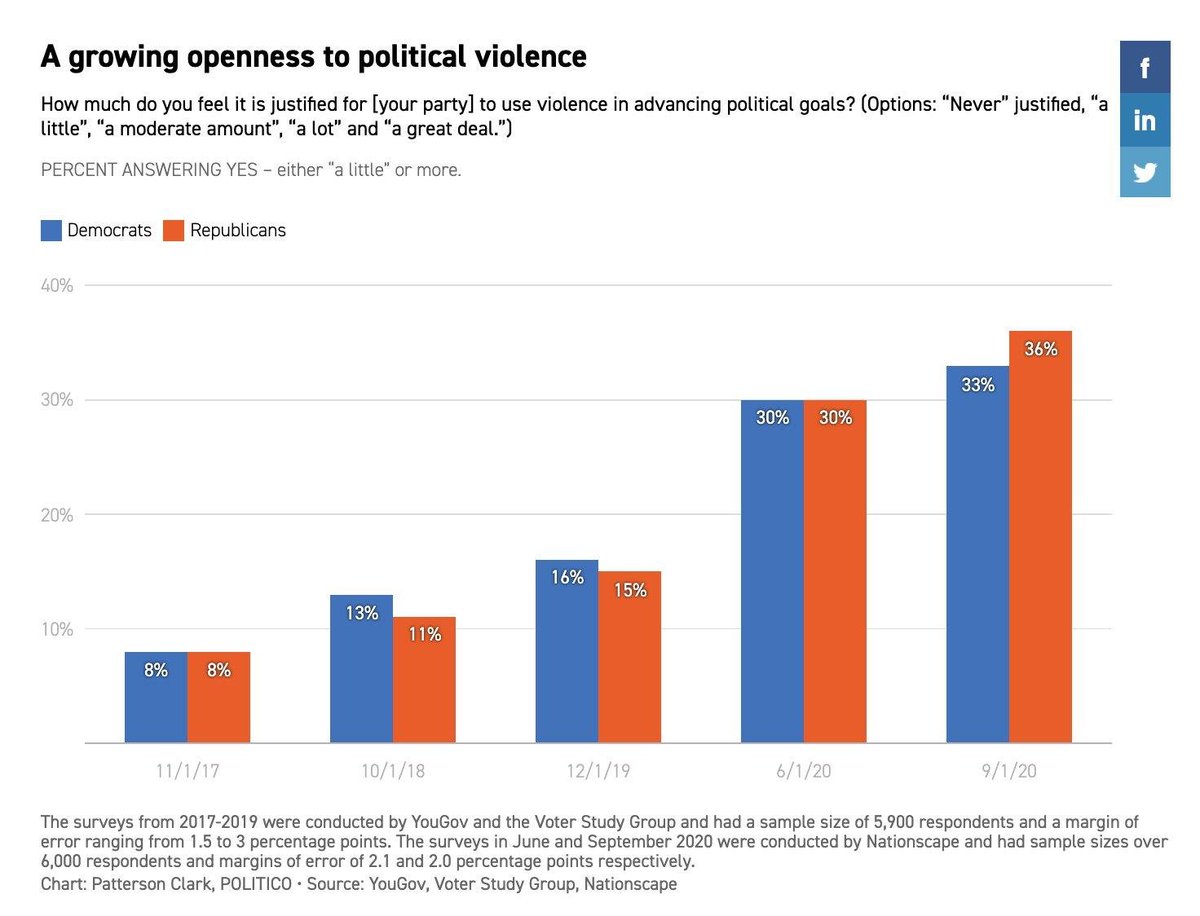THREAD: In a heated political environment, it pays to take a step back and look at the democratic process from a 30,000ft macro view.
A democracy functions best when there’s a wide range of educated and opposing non-static viewpoints...
A democracy functions best when there’s a wide range of educated and opposing non-static viewpoints...
2/ Why?
1. Complexity = unknown: In a complex system, the optimal path or outcome can’t be known and at best, only vaguely conceptualized.
2. Iterative feedback loops: Optimally navigating complex environments requires continuous iteration and course redirection via feedback.
1. Complexity = unknown: In a complex system, the optimal path or outcome can’t be known and at best, only vaguely conceptualized.
2. Iterative feedback loops: Optimally navigating complex environments requires continuous iteration and course redirection via feedback.
3/
3. Opposing forces drive self-correction: In a crowd or hive system, opposing forces are required to maintain a kind of healthy equilibrium (ie, effectively harness the wisdom of crowds).
3. Opposing forces drive self-correction: In a crowd or hive system, opposing forces are required to maintain a kind of healthy equilibrium (ie, effectively harness the wisdom of crowds).
4/ Most of us can generally agree on where we want the country to progress towards - economic growth, access to good education and healthcare, etc. The disagreement is on HOW to get there. Democrats believe in one way, Republicans in another.
5/ What both parties miss is that the optimal path to get to "there" is somewhere in the middle. The path isn’t entirely visible to us b/c the world and politics are endlessly complex. No 1 person, group, ideology has a monopoly on the truth or the optimal path to "there".
6/ It’s our diversity and the democratic system that allows us to trend towards "better" over time. It harnesses our collective wisdom and as a result, we end up with better outcomes than what’s seen in alternative forms of government.
7/ @Scott_E_Page writes about the incredible wisdom of crowds in his book “The Difference”. Here’s one of the many examples he presents, this one referring to the game show “Who Wants to Be a Millionaire”.
8/This superior emergent intelligence is seen throughout nature, from ants and bees collectively identifying the shortest path to food to Buffalo selecting the quickest route over a mountain. It’s a simple, beautiful, and messy process. It’s also robust and extremely effective.
9/ Knowing this, if only one party were to continuously have its way we’d end up further and further from “there”. We wouldn’t receive the benefit of opposing opinions. There’d be no iterative self-correction or any harnessing of our superior collective intelligence.
10/ This is what happens in authoritarian/single-party countries such as China. Their system skews further and further away from optimal, increasing its fragility until it fails. No opposing beliefs = no self-correction. This eventually forces a violent reversion.
11/ Conversely, a healthy political environment follows a sine-wave. Sine is an acceleration opposite to your current position. It’s the iterative self-correction that’s needed to create robust systems. Up close, it looks random and incredibly inefficient...
12/ But… if you’ve read any Nassim Taleb you know that randomness isn’t something to be tempered but rather harnessed. @nntaleb writes:
13/ The human instinct is to try and control for complexity, but this is impossible since we can& #39;t know the best path forward.
"In turbulence is the preservation of the world…"
That’s from @kevin2kelly terrific book “Out of Control”. The following paragraph goes:
"In turbulence is the preservation of the world…"
That’s from @kevin2kelly terrific book “Out of Control”. The following paragraph goes:
14/ Randomness and variability expose weakness and select for resilience. That’s how evolution works its incredible magic. It’s self-defeating to try and eliminate that from nature. Over-optimization of complex systems creates stasis, death. Turbulence = stability
15/ There are many things we can take from this:
1. The petty tribal politicking that’s so prevalent today is pointless. Our strength comes from our differences of opinion. Conversely, our weakness comes when both sides refuse to actively and honestly engage with one another.
1. The petty tribal politicking that’s so prevalent today is pointless. Our strength comes from our differences of opinion. Conversely, our weakness comes when both sides refuse to actively and honestly engage with one another.
16/
2. The questions of which party will win this or that election becomes almost irrelevant... While the questions around the integrity of our institutions and our democratic process become significantly more important...
2. The questions of which party will win this or that election becomes almost irrelevant... While the questions around the integrity of our institutions and our democratic process become significantly more important...
17/ It’s here where decades of gerrymandering and the politicization of our judicial system are concerning, as well as the dangers posed by those who want to silence free speech, punish those with “unpopular” opinions, and are okay using violence as response to disagreements.
18/
3. When you understand the benefit of differing opinions, you’re forced to acknowledge your own fallibility. You can disavow yourself of any single party or ideology. You know that handing off your judgment to a label diminishes your critical judgment...
3. When you understand the benefit of differing opinions, you’re forced to acknowledge your own fallibility. You can disavow yourself of any single party or ideology. You know that handing off your judgment to a label diminishes your critical judgment...
19/... It not only creates an unhealthy lens in which to view and interact with the world, but it’s also pointless and detrimental to you getting closer to truth. https://macro-ops.com/the-label-stupidity-loop/">https://macro-ops.com/the-label...
20/ This heuristic (I call it the Middle Way Approach) is a useful one when analyzing any complex argument where there are at least two reasoned opposing majority viewpoints.
21/ Knowing that collectively we’re smarter than any one person or group, you can split the difference of any contentious debate involving a complex subject and surmise that the truth is likely somewhere in between.
/Fin
If you& #39;d like to learn how we apply this style of thinking to the markets, you can check out this report here.
Cheers, and enjoy your weekend! https://macro-ops.com/theory/ ">https://macro-ops.com/theory/&q...
If you& #39;d like to learn how we apply this style of thinking to the markets, you can check out this report here.
Cheers, and enjoy your weekend! https://macro-ops.com/theory/ ">https://macro-ops.com/theory/&q...

 Read on Twitter
Read on Twitter